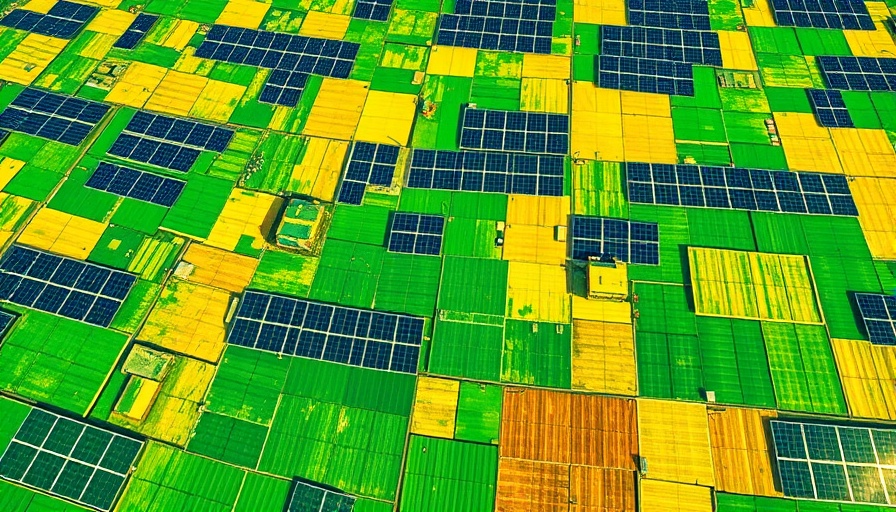
Revolutionizing Africa's Energy Landscape
Africa has long been synonymous with energy scarcity, relying heavily on coal and gas to power its nations. However, a significant shift is on the horizon as cheap solar panels from China flood the continent, igniting a green revolution in energy consumption. Reports indicate that the first half of 2025 saw African nations importing a groundbreaking 1.57 Gigawatts of solar panels—a figure that dwarfs past records. This newfound influx signals a potential transformation in how Africa approaches energy production, with renewable resources taking center stage.
Understanding the Surge: Who's Buying?
Analysts have noted that this surge isn't limited to the wealthier countries like South Africa; rather, it predominantly comes from smaller, less developed nations. In May 2025 alone, countries including Algeria and Chad have drastically ramped up their imports, with Algeria seeing a staggering 6,300 percent increase compared to previous years. This is a remarkable trend that highlights an emerging urgency among these nations to address their electricity shortages.
Why Solar Panels from China?
China's dominance in the solar panel market is well-established, with over 80 percent of global panels manufactured there. This advantage stems from extensive government subsidies, advancements in technology, and significant economies of scale. For African nations, the decision to turn to Chinese panels is not merely economic; it represents a strategic pivot towards sustainability. The price point of these solar panels makes them more accessible and a viable option for nations looking to expand their energy capabilities.
Future Predictions: Powering Growth Through Renewables
Looking ahead, the implications of this solar surge could extend beyond energy access. With individuals like Dave Jones—chief analyst at Ember—arguing that the shift towards renewables could reshape entire economies, it's essential to consider the broader context. Enhanced energy supply could lead to increased employment opportunities, improved standards of living, and ultimately, a more stable environment for businesses and investors. Moreover, as these nations embrace cleaner energy, they will likely gain greater leverage in the global conversation around climate change.
Challenges and Counterarguments
Despite the optimism surrounding solar energy, challenges remain. Critics argue that high dependence on imported panels may leave these countries vulnerable to geopolitical tensions or trade disputes. Others highlight the issue of energy storage and grid integration, which could pose significant hurdles to maximally harnessing solar power. Therefore, while the transition to solar energy offers extraordinary potential, governments must strategize effectively to manage the complexities of this shift.
Actionable Insights for Stakeholders
For businesses and entrepreneurs invested in the renewable sector, the current trend provides numerous opportunities. Engaging in local partnerships to maximize the benefits of imported technology could create sustainable business models. Additionally, advocating for domestic production capabilities may help these countries mitigate reliance on foreign imports in the future.
Conclusion: A Call for Sustainable Strategies
As Africa embarks on this ambitious path towards renewable energy with a record number of solar panels from China, it is crucial for stakeholders—governments, businesses, and communities—to collaborate and devise sustainable strategies that harness the full potential of these resources while addressing the challenges head-on. This is not just a fight against energy scarcity; it's a quest for long-term sustainability and economic development.
 Add Row
Add Row  Add
Add 




Write A Comment